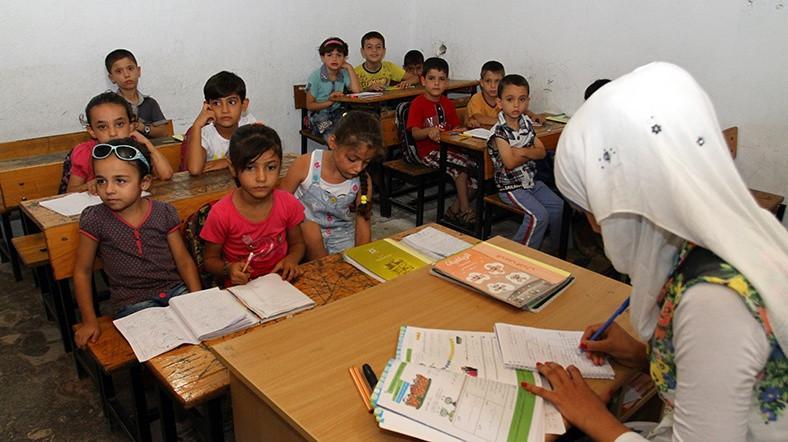
Syrian counselors are set to work with refugee children in schools across Istanbul following a decision by the provincial directorate of the Education Ministry.
The decision came as part of efforts of the Turkish government to help Syrian students integrate into the Turkish education system.
The government decided to slowly close temporary education centers (“GEM” in Turkish), which teach in Arabic and follow an Arabic curriculum. In line with this, authorities have closed down two temporary education centers in Istanbul’s Avcılar district and allocated Syrian children to public schools, where education is fully in Turkish.
But in schools where the number of Syrian children is high, Syrian counselors will be hired to help teachers and administrators communicate with students and their parents in a bid to not harm the refugee children’s psychology.
The Syrian counselor teachers will be paid their salaries by the United Nations Children’s Fund (UNICEF).
“We have closed down the two temporary education centers in Avcılar. We have allocated the Syrian children at these centers to different schools. There are 2,800 school-age Syrian children registered at the temporary education centers in Avcılar,” Emin Engin, Avcılar district director of education, said on Sept. 11.
“The Syrian children were speaking their own language at these centers, but now, after they have been put together with Turkish students [in public schools], they can speak Turkish better. Syrians will no longer go to a special school at the new education year,” he said.
Engin added that to prepare the refugee kids who could not speak Turkish well for the upcoming school year, Turkish teachers gave them various classes during the summer.
There are currently 973,200 Syrian school-age refugee children in Turkey, according to the most recent data. This figure was 833,039 in 2016.
Some 610,278 Syrian children were enrolled in Turkey’s national education system during the 2017-2018 school year, according to data provided by the General Directorate for Migration of the Turkish Interior Ministry. Of this figure, 49.54 percent (302,305) were girls and 50.46 percent (307,973) were boys, the data showed.